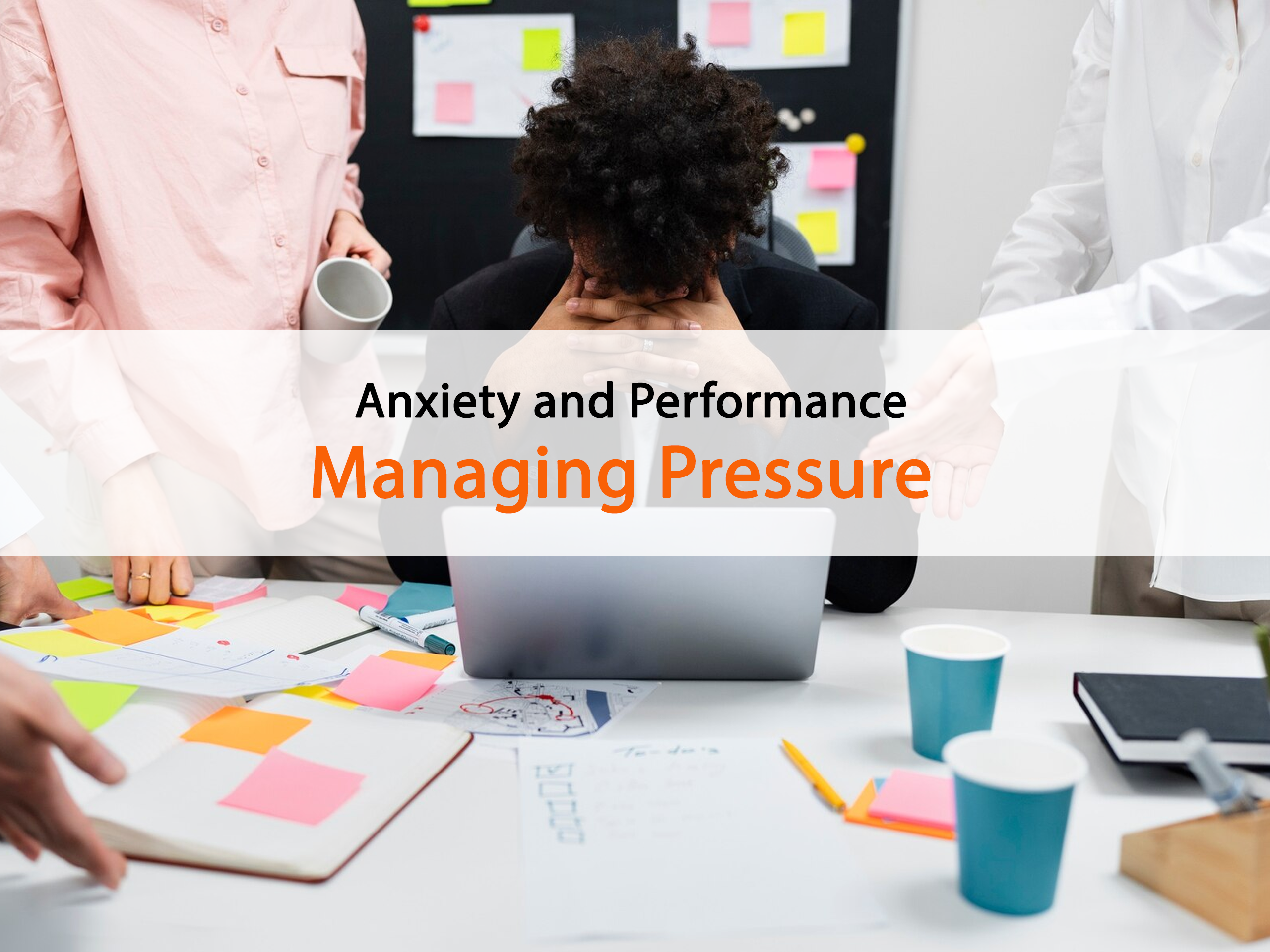Anxiety and Performance: Managing Pressure

Anxiety, a common human emotion, can often interfere with our ability to perform at our best. Whether it's a job interview, a public speaking engagement, or a crucial athletic competition, the pressure to succeed can sometimes feel overwhelming.
How Anxiety Impacts Performance
- Physical Symptoms: Anxiety can manifest physically, leading to increased heart rate, sweating, trembling, and difficulty breathing. These symptoms can distract us from the task at hand and hinder our focus.
- Mental Fog: Anxiety can cloud our thoughts, making it difficult to concentrate, recall information, or think clearly. This can result in errors and lower performance.
- Self-Doubt: Anxiety can fuel self-doubt, eroding our confidence and belief in our abilities. This can create a negative feedback loop, where fear of failure leads to poor performance, which in turn reinforces those fears.

Strategies for Managing Anxiety and Enhancing Performance
1. Mindfulness and Meditation: Cultivating mindfulness can help us stay present in the moment, reducing anxiety and improving focus. Regular meditation practice can also help train our minds to remain calm under pressure.
2. Visualization Techniques: Visualization involves mentally rehearsing a successful performance, helping us build confidence and reduce anxiety. By imagining ourselves performing well, we can create positive mental associations with the task at hand.
3. Positive Self-Talk: Replacing negative self-talk with positive affirmations can boost our self-esteem and reduce anxiety. Remember your strengths, past achievements, and your capacity to overcome challenges.
4. Physical Exercise: Regular physical activity reduces stress and anxiety by releasing endorphins that boost mood. Aim for at least 30 minutes of moderate exercise on most days.
5. Time Management and Planning: Effective time management can help reduce stress and anxiety by preventing procrastination and last-minute rushes. Create a realistic schedule, break down tasks into smaller, manageable steps, and prioritize your workload.
6. Seek Support: Seek advice and support from friends, family, or a mental health professional. Talking about your anxiety can help reduce feelings of isolation and provide valuable coping strategies.

Remember, anxiety is a normal human emotion, and it's possible to manage it effectively. By implementing these strategies, you can learn to embrace pressure and perform at your best.
Note: This is for informational purposes only and should not replace professional medical advice. Always consult a healthcare professional before starting any new treatment or session.
Join our community today and take the first step towards a healthier, more balanced you.
Photo: @Freepik, @unsplash, @Microsoft Designer

